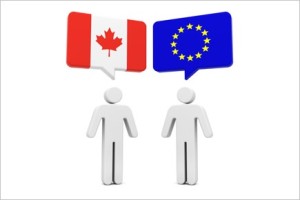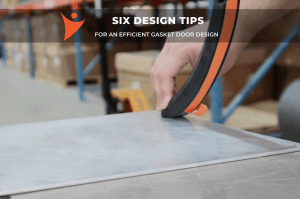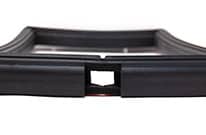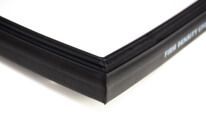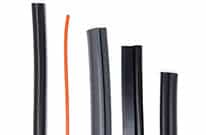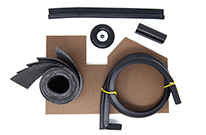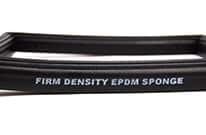Doug Sharpe
President of Elasto Proxy
What is the German word for “plastics”? Yes, you can Google it – but you probably don’t need to if you attended last week’s K 2013 Trade Fair in Dusseldorf, Germany. From October 16 to 23, the K Show was the greatest place on earth to learn about innovations in kunstoffe (plastics). Held just once every three years, the world’s leading plastics event connected 3,000 companies with 220,000 visitors in the massive Messe Dusseldorf tradeshow center.
As the co-founders and co-owners of Elasto Proxy, Donna Sharpe and I met with potential supply chain partners who were eager to exchange ideas and explore business relationships. With its special focus on meeting the needs of the medical marketplace, the K Show allowed us to explain how Elasto Proxy supplies high-quality, low-to-medium volume quantities of custom-fabricated seals and insulation. From durable medical equipment to medical assist devices, medical plastics are in demand.
International Audiences and Auto Parts
Although many of the K Show’s participants came from Europe, nearly 60% were from outside Germany. Meanwhile, in neighboring Belgium, European Commission president Jose Manual Barroso was meeting with Canadian Prime Minister Stephen Harper. After five years of bilateral negotiations, the two leaders agreed in principle to a Comprehensive Economic Trade Agreement (CETA) that could boost trade by an estimated 20% and add $12 billion to the Canadian economy.
If the K 2013 Trade Fair was big for the plastics industry, CETA could be huge. For example, according to a joint study, Canadian automakers would be able to export 100,000 cars a year – 12 times their current limit. As a custom fabricator of rubber and plastic parts for the auto industry, Elasto Proxy works with Tier 1 and Tier 2 suppliers whose operations cross continents. Will CETA lead European automakers to import more custom-molded parts from Canada?
Meeting European Demand
According to Plastics Europe, automotive applications (8.2%) are just one part of the continent’s overall demand for plastics. Packaging is the largest application sector at 39.4%, with building and construction a robust 20.3%. As a custom fabricator of seals for doors, windows, and skylights, Elasto Proxy wonders how the CETA agreement could affect exports of building and construction products. Will builders in Europe import more lighting fixtures, hatch covers, and rooftop HVAC units from Canada?
As the study from Plastics Europe also explains, the continent needs plastic parts for electronic and agricultural applications. Again, these are markets that our Canadian company has long-served. From enclosure gaskets to limit-stop rubber bumpers, our solutions providers have worked closely with the electronics industry to meet sealing challenges. Makers of mobile specialty vehicles such as tractors also need custom-fabricated parts for roll-over protection structures (ROPS).
Tradeshows and Trade Agreements
With K 2013 complete, the next K Trade Fair is three years away. Will Canada and the European Union (EU) ratify the Comprehensive Economic Trade Agreement (CETA) by then? Although some industries support CETA, others (such as Quebec cheesemakers) are strongly opposed. Where do you stand in the upcoming CETA debate? And how could the proposed free-trade agreement affect your industry?

